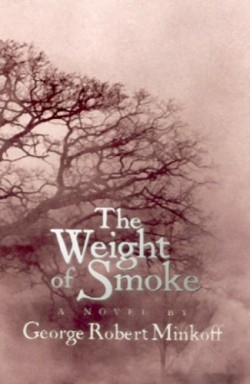The Weight of Smoke
- 2006 INDIES Finalist
- Finalist, Historical (Adult Fiction)
The first novel of a trilogy about the lives of Captain John Smith and Sir Francis Drake, this is an ambitious, if sometimes problematic, book. Its title refers to tobacco, a crop indigenous to the New World, a substance sacred to the Native tribes, and a new, very fashionable luxury in late sixteenth and early seventeenth century Europe.
This was the Age of Discovery, an era dominated by the Spanish Empire, whose American possessions yielded vast wealth and attracted such Elizabethan adventurers as Drake, who raided Spain’s colonies and treasure fleets and vanquished the Armada in the English Channel. Sailing with them were younger men who would later seek to plant permanent settlements in the wilderness, like the hard-pressed but enduring Jamestown colony where most of The Weight of Smoke unfolds. Captain John Smith, of Pocahontas fame, is the primary narrator, although many pages are devoted to an old seadog’s memories of Drake’s voyages a generation earlier. This structure allows for much derring-do against Spanish soldiers and Virginia “savages” alike and (presumably) introduces the main characters of the overall project, but can be confusing for readers who may occasionally forget whether they are on Chesapeake Bay or the Spanish Main.
The author has previously written about the American expatriate movement and his Bibliography of the Black Sun Press is a standard reference on the subject. He is also current secretary of the Poetry Society of America, which interest may account for his book’s most unusual aspect: its highly original language.
So rich is the English of this epoch (think Shakespeare and the King James Bible) that the temptation to mimic it must be irresistible to the poetically minded. But while Minkoff achieves some lovely effects, a little pastiche generally goes a long way—and The Weight of Smoke goes rather farther. This would be a mere quibble if his unique style didn’t often make it hard to tease out his actual meaning; in fairness, however, many readers may find that it lends authenticity.
Here, Smith ruminates on his feelings for Pocahontas: “I dream a tenderness upon a space of air, I kiss at nothing but an idyll in an emptiness. But it will not cease. I am wormed by thought. My phantom arms seek a shadow. Its apparition has her name. Her profile speaks in worlds, their landscapes suffocations. I tongue her lips. I steam in a cold heat. I am by pain. My passions will not hold me as a rock.” Readers who appreciate this will love The Weight of Smoke; others may find it a bit of a slog.
This volume’s parallel tales each end inconclusively, with Smith poised to take command of Jamestown in September 1608, and Drake back home in England in 1576, a national hero. Each man’s story has exciting chapters yet to come and any definitive judgment will have to wait for the other two books, which will doubtless weave an epic tapestry, although perhaps too poetical for some tastes.
Reviewed by
Peyton Moss
Disclosure: This article is not an endorsement, but a review. The publisher of this book provided free copies of the book to have their book reviewed by a professional reviewer. No fee was paid by the publisher for this review. Foreword Reviews only recommends books that we love. Foreword Magazine, Inc. is disclosing this in accordance with the Federal Trade Commission’s 16 CFR, Part 255.

